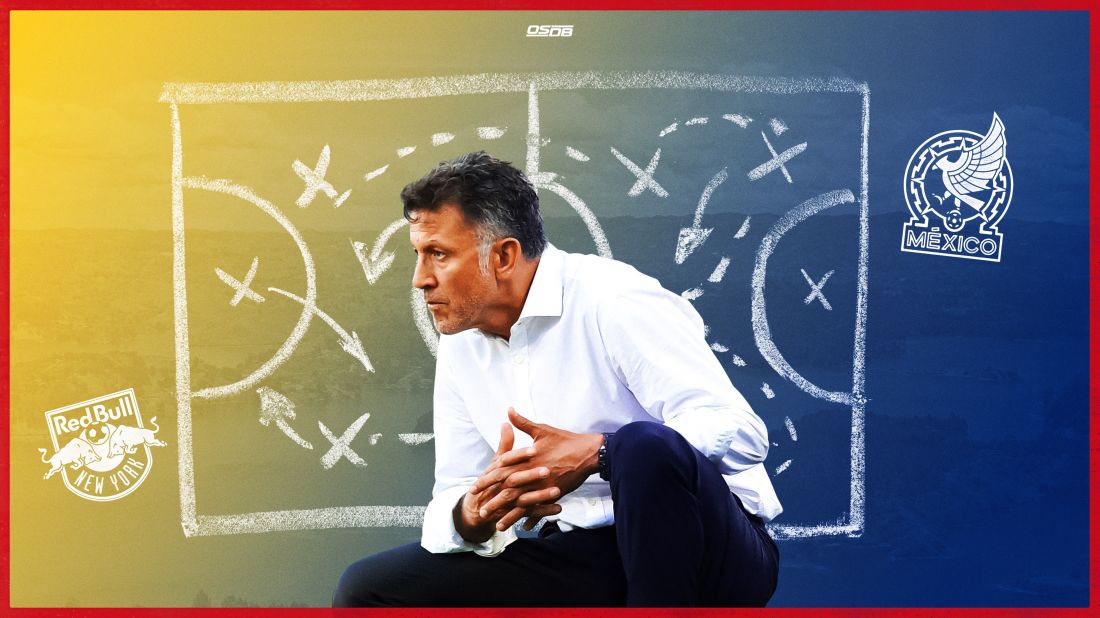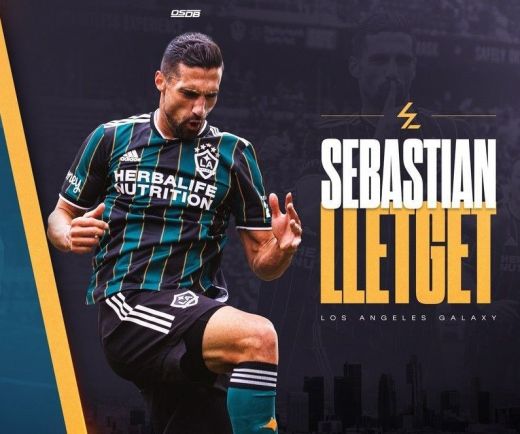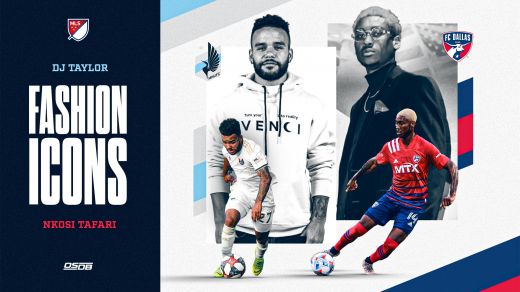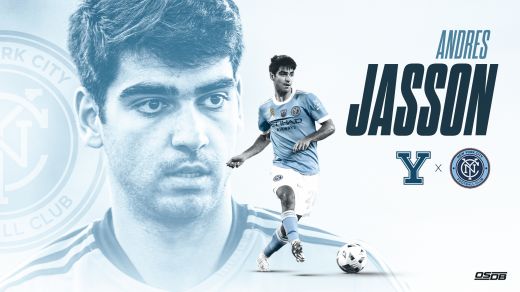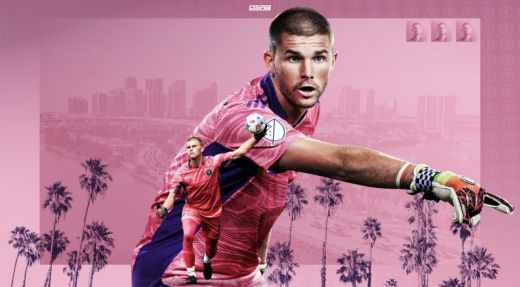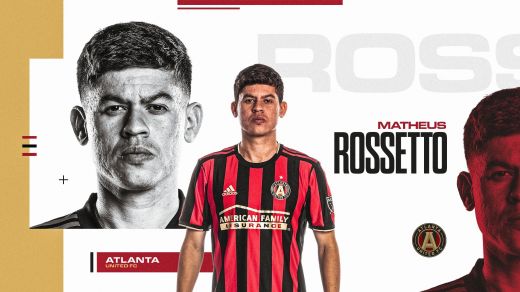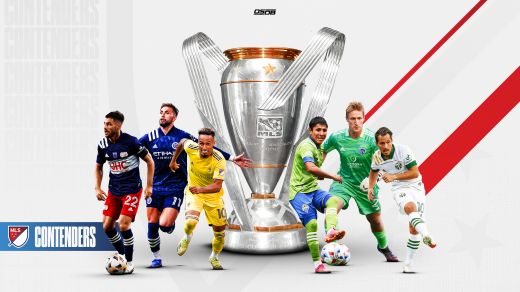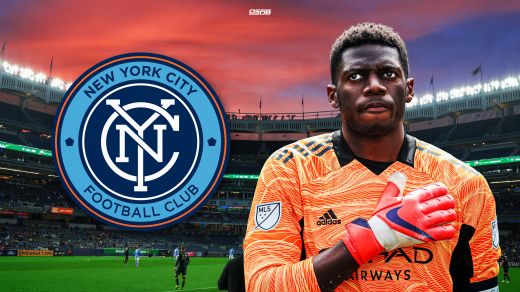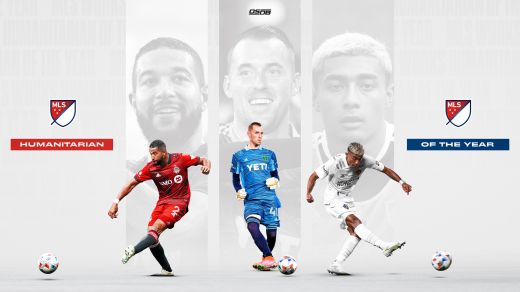From his home in Medellin, Colombia, Juan Carlos Osorio logs onto a video conference call a couple minutes late, apologizing for his tardiness. He was reviewing the international friendly between Spain and Portugal from the previous day.
The 60-year-old has a diverse resume, which includes leading Mexico to the knockout round of the 2018 FIFA World Cup after beating Germany in the group stage, the New York Red Bulls to their lone MLS Cup appearance and helping build a Atlético Nacional team that won the Copa Libertadores.
But Osorio remains a student, always learning, always looking to improve.
“That’s why I do think I have to study,” Osorio told OSDBsports.com. “I watch and review and investigate how other coaches see the game and try to learn from everybody.”
Through his vast experiences, coaching domestic sides in his native Colombia and Brazil after coaching Chicago Fire FC and the New York Red Bulls, the Mexican National Team and brief stints with Puebla and Paraguay, Osorio is uniquely positioned to speak about Major League Soccer, its rapid growth and where the league stands among others in North and South America that look to develop and then sell players to European clubs.
“MLS is really a league to be followed, to be imitated, to be analyzed as the league that probably improved the most in the last 15-20 years in football,” Osorio said. “MLS, as I always thought and I still think, is a league that has to be a model for many.”
It’s a much different league, one that’s evolved greatly since he last patrolled the sidelines with the Red Bulls after being part of Octavio Zambrano’s MetroStars staff during the 2000 season.
At the time, the club still played at Giants Stadium and a training location often changed at a moment’s notice. It’s a far cry from Red Bull Arena and the club’s training facility in Hanover, and other soccer-specific stadiums and world-class facilities throughout the league today.
“For lawyers, just to give an example, the best way to improve is be in the courts and to take real cases. For footballers, the best way is training on good pitches with good infrastructure,” Osorio said. “[MLS] has that. It’s unbelievable, there are teams that have 12-15 soccer fields. In Colombia, only maybe four teams have one excellent football pitch and maybe two. The rest, I mean 38 teams, don’t even have their own places to train and that’s unbelievable.”
And while MLS has increased salary budgets, the salary cap structure of the league, which has led to a competitive balance every year, is something Osorio admires and thinks should be implemented in other leagues.
“I love that. That should be the same thing in South America because the teams that make a difference here and the ones that have the most money and it shouldn’t be that way,” Osorio said. “That’s the competitiveness of the American athletes and that’s amazing. Americans are as competitive as the Argentines, as the Uruguayans. To give an example, Brazilians are more talented. That’s what we need to learn from MLS — how to compete on the same salary structure and let’s see who does a better job.”
As roster-building mechanisms like the U22 Initiative and Young Designated Player rule continue to mature, MLS has seen an influx of young South American players, ranging from NYCFC forward Talles Magno (Brazil) to league-record transfer and Atlanta attacking centerpiece Thiago Almada (Argentina).
It’s a change in the landscape Osorio has noticed.
“Historically, the springboard for South American players to go from South America to Europe was to play in the Argentinian league,” Osorio said. “I think MLS is competing now, and will compete with them, with Argentina, with other nations that want to make that big jump because its a good league, the infrastructure is there, its very competitive, there’s good athletes, every day I think they have better coaches, the ways to learn and improve for the coaches is there. I would only expect MLS would be better every year.”
Osorio, too, has evolved as a coach since his time in MLS, where he helped the Fire reach the Eastern Conference final in 2007 and then guided the Red Bulls to the MLS Cup final the following year after the club qualified for the playoffs on Decision Day.
They upset defending champion Houston before going to Rio Tinto Stadium and beating Real Salt Lake to reach MLS Cup, where they fell to the Columbus Crew in Carson, Calif.
After parting ways with the Red Bulls midway through the following season, Osorio resurfaced to coach Once Caldas, a team that went from the threat of relegation when he took over in Nov. 2009 to Colombian champions a year later.
He won three more championships in the Colombian top flight in his first stint with Nacional, where he picked up where his predecessor Santiago Escobar left off.
“He started by buying 14 of the best players, in his mind, in Colombian football. Unfortunately, because he’s a good coach and a great human being, things didn’t go his way,” Osorio said. “My job was to consolidate some of those players and the players I didn’t think were up to that level, just release them or move them to other teams. Then, there was another coach [Reinaldo Rueda] who came in and won the Copa Libertadores. It’s a process.”
A 28-game term as Sao Paulo manager followed before Osorio landed the job as El Tri coach in October 2015.
Despite the heavy criticism that comes with the job, especially for someone who thinks outside the box by switching positions and tinkering with the lineup, Osorio had tremendous success in the most pressure-packed job in this region.
He won 63% of his matches, including that historic win over Germany to open the group stage of the 2018 World Cup. El Tri battled Brazil tightly for 60 minutes before Roberto Firmino’s insurance goal two minutes from full time secured a 2-0 victory.
Osorio, who had a 33-10-9 record, was reportedly offered a contract extension after the World Cup, but he stepped away. He returned to Colombia, where he was linked to the national team job when Jose Pekerman left.
Instead, Arturo Reyes was handed the reins in Jan. 2018.
“I believed in the Colombian federation and what they promised me and, in the end, they didn’t do what they told me,” Osorio said.
Osorio said each stop in his journey was a learning experience. As part of Kevin Keegan’s staff at Manchester City for four years, Osorio said he learned about direct football, how to play it, how to defend it and how to prevent it. He said in Mexico he learned “money could be very good, but can also be a big problem,” and in Brazil he said he got a crash course in how big culture plays a part in the athlete.
He said the majority of the players he encountered 45 minutes before going out to training would eat rice, beans, eggs, meat and then have no issues running for days.
“The most important thing is just to be open to learn, write down the things you learn from every environment, every ecosystem you have been a part of,” Osorio said. “Because a football team is that, an ecosystem where the most important part is how they interact with each other and, at the end, identify one idea of play, try to play that way, but always be prepared to play the other way.”
Also, at each stop in his journey, Osorio has networked and has learned from some of the most influential coaches in the game, from legendary Manchester United manager Sir Alex Ferguson and from close friend Juanma Lillo, who succeeded Mikel Arteta as Pep Guardiola’s assistant coach at Manchester City.
Ferguson famously recommended Robin Thorpe to be a sleep coach for Mexico at the 2018 World Cup. Osorio said he placed a big value on rest and recovery, but the request wasn’t met favorably by the Mexican federation.
“I still couldn’t convince the Mexican Federation to take Robin,” he said. “Now where does he work? In America with the top athletes, Olympic athletes. Why? Because now they realize this Colombian crazy guy was right.”
During his time as Mexico coach, Osorio was quoted as saying he preferred his players to play outside MLS in their prime. But Osorio told OSDBsports.com he was referring to talk of Carlos Vela coming to MLS, where he became LAFC’s first Designated Player, leaving La Liga at the age of 28.
“I don’t understand how come Carlos is not part of the Mexican team these days. He’s a crack. He is something else, he’s different,” said Osorio, who coached Vela at El Tri. “I was saying [Vela was] too young to go [to MLS]. You still have a lot to learn in European football. I did not minimize the league. I never spoke in derogatory terms about the league.”
Now 33, Vela was twice named an MLS All-Star and MLS Best XI. He captured the Landon Donovan MVP award, while also setting an MLS record for goals in a season with 34 to capture the Golden Boot as LAFC won the Supporters’ Shield.
“I just thought at that particular time Carlos Vela is still young and should stay at Real Sociadad, should stay in Europe. But I think Carlos has proved to me and to everybody he is a different type of person,” Osorio said. “He plays in MLS, he is a very influential player, he has made a lot of money and he still doesn’t want to be considered for the national team. But that’s Carlos and that’s him. I was trying to tell him what to do and I didn’t succeed.”
Osorio was named Paraguay’s head coach in September 2018. The contract was mutually terminated five months later with Osorio citing family reasons for his return to Colombia, where he coached Nacional for a second time before his most recent job with America de Cali that ended March 31.
Osorio’s oldest son, Sergio Osorio, elected to study medicine in Colombia rather than the United States for the opportunity to assist and attend surgeries in his first year of school there. His other son, Juan Sebastian Osorio, is a professional soccer player at America de Cali
“I have received opportunities from Brazil, from Mexico and I decided not to take them,” Osorio said. “Aside from that, I am very lucky my two parents are still alive, but they are very old with a lot of health problems and I always wanted to be around to support them and visit them.”
Osorio is ready now, though. He interviewed for the LAFC job that ultimately went to Steve Cherundolo, saying MLS has become a league of choice for coaches around the world, citing the decisions made by Patrick Vieira and then Dome Torrent to manage NYCFC.
“MLS has the culture, you promote good athletes, you have access to technology, food, great fields so you became a very competitive league. That’s something I admire the most,” Osorio said. “I always thought one day I could be the [Colombia] national team coach. Now, I change drastically and I am looking to go abroad and MLS is a fantastic league, a very tempting work opportunity. Many, many coaches would like to go there. I am in that category.”
